Summer season is here
With the weather getting warmer we are starting to see more cars with A/C issues. Here is a Peugeot RCZ […]
READ MORE -
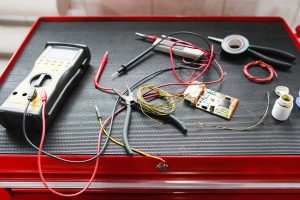 Electric Vehicle Servicing, Maintenance and Repair – A question we are getting asked more and more is…. Do Electric cars still need the same vehicle servicing, maintenance and repair as a regular petrol or diesel car? Well the answer is simple. Yes they do.
Electric Vehicle Servicing, Maintenance and Repair – A question we are getting asked more and more is…. Do Electric cars still need the same vehicle servicing, maintenance and repair as a regular petrol or diesel car? Well the answer is simple. Yes they do.
For many the worry is how to find the right trained mechanic to fix their car. It is fair to say most mechanics are trained to work with regular internal combustion engines, but don’t have the equipment or staff training to maintain and service electric vehicles. However, just like when you have auto electric faults with your current vehicle, the idea is to find a good auto electrician to deal with these issues. Most experienced car or vehicle electrics specialists will be routinely upskilled themselves in the new requirements and equipment needed to help you.
Again the anwer is simple…Yes they do.. Just like a regular vehicle, an electric car will need to go on for an MOT annually after it is 3 years old. The GOV.UK website can be a source of confusion for drivers as it lists ‘good vehicles powered by electricity’ under vehicles exempt from MOT – however, this does not cover electric cars. So make sure you keep a record or check with your local garage what you will need for your mot
Initially this is always hard to answer, because all vehicles are different and will vary in cost for their servicing and general maintenance. What I have noticed is that with electric motors, and their simplicity and overall low maintenance you could find yourselves with considerably lower maintenance costs saving you literally hundreds over the year.
At Widnes Auto Electrical, our auto electrician have received specialist training to work competently on electric vehicles – we also have all the necessary testing and safety equipment in-house to carry out servicing and repair on electric vehicles. To find out more about how we can help feel free to give us a call or call into our auto-electrical repair centre in Widnes
Electric Cars have been presented to the wold as the future of the motoring industry for the last few years. So why have the sales of electric cars not yet set the world alight. You would think that with all the worry about how much oil there is left in the world, and concerns with global warming, we would have seen more electric cars by now.
Many people have many reasons why they have not taken off, but one of the big reasons why seems to be the distance you can travel in one before you need to recharge the batteries. Typically a lot of cars are not seeing much more than 100 miles compared to a lot of new cars being built that can now achieve over 500 miles on just 1 tank.
For anyone traveling a long distance for work, pleasure or any other reason, the fear that the battery could die in the middle of nowhere makes people decide against buying an electric car vs the traditional motor car. This is despite the fact there are now over 7,000 charging stations across the UK.
Cost has also been a major factor for the decision making process on buying a new car. The electric powered vehicles on the road today still seem considerably higher in price than your regular motor car from new. This is because the cost of producing the electric power motors is still quite high so it may be that people will prefer to wait a few years until there is an economic benefit to buying a an electrical vehicle.
To add to some of these reasons, there is also the fact that a lot of the electric cars currently on the market are not built in an aesthetically pleasing design. The Toyota Prius for example isn’t exactly the most beautiful car in the world. It only seems to be the likes of BMW, Porsche and the likes that have the desire to build electric cars with designs that we will love. The problem here again is that you will be buying the badge, and then the cost issue comes in to play again. Me personally, if I had the money, I would choose a real 911 over a hybrid Porsche all day long if I had the money for this brand of motor!
With all this said and done, don’t give up on the Electric car just yet, According to a BBC report on electric car sales, we bought almost 5 times as many electric powered cars in just one month last year compared to the previous year! In fact it would appear that during this time sales of hybrid vehicles have rocketed tenfold!
In short. It must be said that as time goes by, the future looks like it is heading towards the electric motor. Google and Apple are already partnering with major manufactures to create driverless motor vehicles. It’s surely only a matter of time before we see the electrical takeover of the motor industry.
Watch this space everyone
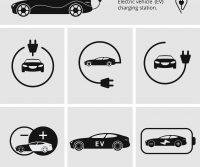
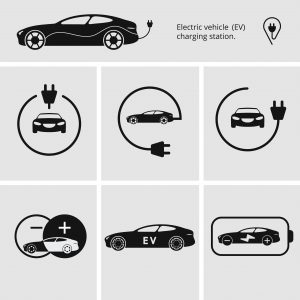 Are the combustion engines days numbered? Is this the beginning of the end for the diesel and petrol engine? Lets find out….
Are the combustion engines days numbered? Is this the beginning of the end for the diesel and petrol engine? Lets find out….
Significant gains in battery technology favour electric motors moving into the future. Current electric cars, powered by lithium-ion batteries, can reach ranges of almost of 300 miles on a single charge Tesla fans recently drove a Model S more than 700 miles in one go. Straight away this takes away the more recent questions and concerns around how far you can drive without needing to stop versus a diesel or petrol car.
Many thought leaders actually believe the “total cost of ownership” of an electric car will reach parity with a petrol one next year. Predictions are being made that electric vehicles will make up 14% of global car sales by 2025. Regulations are tightening, too. Last month the UK joined a lengthening list of electric-only countries, saying that all new cars must be zero-emission by 2050.
Electrification has thrown the car industry into potential chaos. Many leading brands are founded on their engineering heritage—especially in Germany. Compared with existing vehicles, electric cars are much simpler and have fewer parts; they are more like computers on wheels. That means they need fewer people to assemble them and fewer subsidiary systems from specialist suppliers.
While today’s carmakers grapple with their costly legacy of old factories and swollen workforces, new entrants will be unencumbered. Premium brands may be able to stand out through styling and handling, but low-margin, mass-market carmakers will have to compete chiefly on cost. Ultimately, what this means is, new competition in the industry from players such as Apple and Google will drive the cost down, and through innovation, the quality of Electric vehicles up.
Driverless electric cars in the 21st century are likely to improve the world in profound and unexpected ways, just as vehicles powered by internal combustion engines did in the 20th. But it will be a bumpy road. Buckle up. Follow our latest news to keep up with all the changes to the world of electric cars!

Tesla the electric car maker has proven that hundreds of thousands of people are unlikely to purchase sleek luxury electric cars over models from Mercedes or BMW. The market shares of these legacy brands have been slipping with the rush for electric cars even as automakers are making massive investments in the electric future. Daimler has just placed an order for batteries for $23 billion, GM and Ford are both undergoing massive restructuring to keep pace even as Volkswagen has already announced its $50 billion push for electric vehicles.
The market will undoubtedly transition to electric vehicles but the timing of when it is likely to happen is still not confirmed. Just 2% of plug-in electric cars are presently being used in the US as compared to 2.2% worldwide. The massive numbers of electric vehicles are sold globally over the last year is approximately 2 million but just one in 250 cars operate on electricity. The sales of electric vehicles have only risen in Norway which has lavished subsidies and perks to witness an increase in EV car sales in the region of 30%.
The auto industry is currently facing a dilemma which was studded by the consulting firm Deloitte. The dilemma faced by automakers relates to how fast they should be making investments in fresh electronic technology while generating profits to make the transition. The consulting firm expects 21 million electric vehicles to be manufactured and roll over the assembly lines over the next decade even as the prices for EV vehicles slip below similar gasoline and diesel models by 2024.
However, the rush to expand the manufacturing capacity of electric vehicles is predicted to produce a glut of EV’s affecting the bottom lines of manufacturers. Deloitte has stated that their projections indicate supplies will vastly outweigh demand from the market by approximately 14 million units over the next decade. The research conducted by Deloitte suggests that with every manufacturer looking forward to mass producing electric vehicles ever from over a dozen new car makers from throughout the globe the number of manufacturers cannot sustain itself.
Estimates are also provided that the appeal for electric vehicles may not spread fast enough beyond the techies and greenies that initially fuelled the early days of the market as commented by David Keith and engineer and Prof at the MIT Sloan School of Management who also mentioned that electric vehicles may struggle to break the 5% barrier of the US market in the near future. Consumers in the US believe that isn’t a problem which the electric vehicle can solve for them and this is the reason for the prediction made by David Keith.
A former BMW engineer who presently manages a consulting firm in Silicon Valley, Sven Beiker, also has a similar opinion. Even as prices of electric vehicles begin to come down government subsidies which are presently offered for these vehicles are likely to phase out manufacturers such as Ford, Nissan, GM, and Tesla. Price-sensitive buyers could be deterred by the lack of subsidies. Beiker has commented he finds Tesla impressive with the model 3 being on top of the list for 2018 car sales. However, it still needs to be ascertained whether Tesla is managing to hold its position simply because it is an electric vehicle or whether it is just a cool new car.
Buying a new car is a very exciting time. Lots of things to consider. Do you buy new? Do you save a little money and buy one a few years old? Are you looking for a bargain with thousands and thousands of miles on the clock? We will usually spend time looking at a number of different cars thinking about how we will feel and look in our new motor. Whilst this a fun part of the process, it is also the part we can also get carried away with and focus to much on. Instead, we really ought to focus on the electrical and mechanical issues that surround and used vehicle purchase. As a result of this lack of focus many buyers may end up with a car that has these very issues that they simply are not aware of.
It’s really important to check in advance whether or not your car is roadworthy and worth the price. It’s always a good idea to have a mechanic look over the vehicle to see if there are any obvious faults that will cost you down the line. Even if a car is sold with a warranty, it’s still a pain down the line to have to send your car away when it could have been fixed in advance of your purchase.
Going beyond looking at whether your lights work or not is a really important thing to do. With many cars having more and more electrical components and sophisticated on board computers controlling the vehicle, as quick trip to your local auto electrician could save you a lot of money in the long run. Checking the car electrics with the latest diagnostic equipment can either reveal a multitude of problems, or put your mind at rest that you are buying the right car at the right price. It’s always good to check as it will definitely save you money in the long run.
Testing driving the car is not just about how you will look and feel driving the motor. Driving round the block is the perfect time to listen out for any rattles and creaks and see how it generally handles on the road. If all goes will and you have made the necessary electrical and mechanical checks from your local garage or professional mechanic, then you’re good to go.
Remember, taking time to make these checks really will save you money and time in the long run. If in doubt feel free to give we call here at Widnes Auto Electrical and we will be happy to guide you
1. Determine a range of cost.
2. Always test drive the car.
3. Research the vehicle.
4. Consider the Cars Best Suited for You.
5. Review the Vehicle History Report.
6. Request a Pre-purchase Inspection.
7. Take a Look at Some of the Reviews.
8. Do Not Hesitate To Negotiate.
9. Validate Ownership.
10. Complete the Transaction.
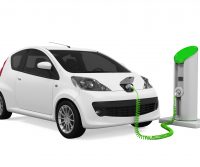
 What do you get it you cross an Electric car with a Kettle? You might ask yourself why on earth is a car electrics specialist in Widnes writing an article about crossing an electric car with boiling a Kettle ? Strange you might ask. However, I thought it might be useful for you all to know that, according to the National grid, attempting to boil a kettle whilst charging your electric can could actually blow your fuse!
What do you get it you cross an Electric car with a Kettle? You might ask yourself why on earth is a car electrics specialist in Widnes writing an article about crossing an electric car with boiling a Kettle ? Strange you might ask. However, I thought it might be useful for you all to know that, according to the National grid, attempting to boil a kettle whilst charging your electric can could actually blow your fuse!
A “thought piece” document obtained by the Financial Times – Source – Telegraph warned that if you used household items such as kettles or even electric ovens at the same time as charging your electric car battery would blow the fuse.
“If one were to use an above average power charger, say 11kW, this would require 48 amps. When using such a charger it would mean that you could not use other high demand electrical items… without tripping the house’s main fuse.”
What makes this particularly interesting is that this comes just weeks after the Government announced plans to ban the sale of new diesel and petrol cars by 2040 in a bid to encourage people to buy electric vehicles.
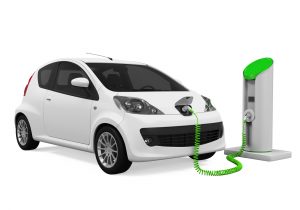 It suggests that the ability to travel longer distances without stopping to recharge will be a “must have” if motorists are to abandon petrol or diesel cars. In order to do this electric cars may well need more and more powerful batteries which, when charging will continue to effect your daily appliance usage.
It suggests that the ability to travel longer distances without stopping to recharge will be a “must have” if motorists are to abandon petrol or diesel cars. In order to do this electric cars may well need more and more powerful batteries which, when charging will continue to effect your daily appliance usage.
So what are the possible solutions? 2 most popular trending suggestions are to build several thousand “super fast” charging forecourts — similar to modern day petrol stations — or “large scale rebuild of the domestic electricity infrastructure” by fitting homes with the maximum 100 amp main fuse. Not sure which is the better option as yet. My thoughts would be that we would all prefer the convenience of charging our cars whilst at home. But the question remains, will we be ready for the next step in the automotive industry.
 After many false dawns the electric car is finally making headway in replacing the internal combustion engine.
After many false dawns the electric car is finally making headway in replacing the internal combustion engine.The future of Electric Cars – A recent update by Transport & Environment suggests that by the end of the year there will be more than half a million battery, electric and plug-in hybrid vehicles on Europe’s roads; and sales this year should account for 1.5 percent of the market. These figures may be modest with all things considered it appears the electric car is finally forcing carmakers from their comfort zone.
Volkswagen recently launched its I.D. concept car, which is set for production in 2020 and will have an electric range of at least 400 kilometers. Herbert Diess, head of the VW brand, described the car as “revolutionary,” comparing its impact on the brand’s history to the Beetle or the Golf. This followed an earlier announcement that the VW Group aspires to get a quarter of its sales from electric by 2025 and is planning 20 models.
Mercedes launched an equivalent Generation EQ concept car that will become a new sub-brand with at least 10 plug-in models.In other announcements, Vauxhall unveiled the Ampera-e and Renault and BMW detailed upgrades of the Zoe and i3 respectively, with Renault commenting: “Our vision of the electric market is that it is not a niche market.”
The future of Electric Cars – Fears that electric cars will decimate the value of the important European automotive sector also appear to be unfounded. VW has outlined plans for a €10 billion battery factory; Samsung SDI is to invest €320 million to build an electric-vehicle battery plant in Hungary; meanwhile LG Chem is reported to be planning a factory in Wrocław, Poland. Independent studies estimate that the shift will create between 500,000 and 1 million jobs by 2030.
Electric cars are not a panacea but together with e-bikes, electric scooters, trains and trams, they will provide the opportunity for a cleaner, greener mobility future that assigns dirty diesel cars and trains, which choke cities and commuters, to the scrapyard of obsolescence. It is no longer a question of whether this happens — but how quickly.

Electric Cars – It’s basically a car that is propelled by electric engines instead of the usual internal combustion ones. Although you may think this is a new invention, it is not. Since the late 19th Century that electric cars exist, but only now we see this major need for them and the increase of search to buy them as well. The reasons vary a lot. It can be from environmental concerns, the uprising of prices of gasoline and several others.
Nonetheless, what matters is that the creation of electric cars is increasing and Jaguar does not intend to be left behind on the subject. They expect to have an all- electric car by 2018 – the I-Pace. It will be Jaguar’s second SUV in all its history and it will be electric. The car maker is promising that the quality of performance and looks
won’t change a bit from what the customer expects from a Jaguar. Wolfgang Ziebart, the technical development leader said “the I-PACE concept fully exploits the potential EVs can offer in space utilisation, driving pleasure, and performance.”
The Jaguar I-Pace is expected to have two electric motors that will pump 516 pound-feet of torque, with a combined 400 horsepower. Charging it won’t be difficult as well, since its 90 kilowatt-hour lithium-ion battery pack only needs 2 hours on a 50kW fast-charging DC station what will allow the SUV to deliver a range of 500 miles. The carmaker is also saying that for those who only drive around 30 miles a day, the car will only need to be charged once a week.
The Director of Design, Ian Callum said that “the interior of the I-PACE Concept is finished with beautiful, premium materials and an unwavering attention to detail” wish lets the clients feel more secure about this new concept.What we really can expect is that the future will be full of electric cars and we should start to adapt ourselves and our cities to them.
Electric Cars – Keep checking in on our car electrics blogs for more updates on Electric cars